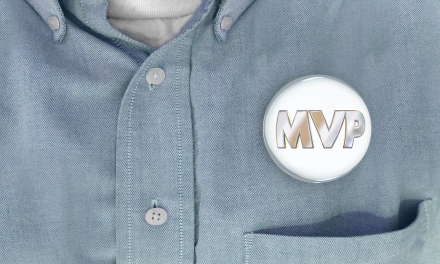How do you decide what business idea to launch next?. . .
At some point in our lives, we have to make a decision about an idea, an investment, a new business or career.
How many times have you been at the crossroads and realised that there’s so much you could do, but you’re finding it hard to make a decision for what is best?
Maybe you’ve been looking for a new product line for your business, or a totally new business idea that you want to start.
How do you decide for sure; this is the one you’re going to choose?
Many entrepreneurs have no issue with self-belief, they know they can do anything they set their minds to, but the problem is knowing exactly what they are going to choose.
Instead of choosing the actual thing, take another view on the impact it’s going to have in your life first.
We can often have a very broad view on what something is going to require in time, funds and effort until we really dig deep and start to research exactly what’s going to be required of us.
How often have you been in a situation where you’re deep into the process but didn’t anticipate exactly how much more there was to do, that you didn’t expect?
So instead of jumping straight in and deciding, “that’s what I’m going to do”, let’s look at it from another angle.
Before you consider your strengths, weaknesses, available cash and desire to take on a new project, start with time.
Not the time you think it will take to complete to get something off the ground, but the time it’s going to take once you’ve got it running.
How many hours per week are you prepared to put into thinking about this business in its development stage? And then how many hours are you prepared to put into the actual operation of the business, assuming you’re going to be the one that carries out all the work to start with.
Until you’ve built all the systems and the processes, and it’s got to a stage where you can afford to put somebody else into the operational role, how many hours are you prepared to give up to make this a success?
The next thing to consider is how much does this need to pay you. So, what’s the amount you need to take from this particular project in order for it to be a success?
So, it could be £500 a week, it could be £10000. What’s the figure you need?
Write down your answers before you go any further.
Because these are the parameters that you have to work within. And they’re the non-negotiable limits that you need to stick to in order for this to be something enjoyable, and not something that’s going to take all your time and not pay you enough for it.
These are the most important things before you decide the actual thing that it is, you’re going to do.
So next, find as many things as you can think of that you could do.
Many entrepreneurs have no issue with self-belief
This idea you may have, how many other ideas can you think of?
If it’s a new business you’re starting, how many types of businesses could you see yourself being able to do with the current skill sets, strengths and potential that you have?
Spend a week or two making a big list of potential ideas and don’t judge any of the things that you write down at this level, that will come later. Do not make a decision and get side-tracked, this is your emotions taking over!
Do some research. If it’s a new idea, try and think of other ideas that are related to it. Even If you think there’s only an outside chance of doing this, put it on the list.
The next thing to do with the list is to put it into a spreadsheet.
Start filtering the list by eliminating any choices that don’t fit the criteria that you set in stage one. (That was how many hours you’re prepared to put into it, and how much it needs to pay you).
So, if it doesn’t have the potential to fit into those two categories, then seriously consider removing it from the list or scoring it a zero once you start to judge your results.
The questions to ask yourself once you’ve compiled this list are:
- If my idea scales, will it fit into the life I want? So, could I fit it into the hours I chose that I want to work at an acceptable rate of return in cash?
- If it’s important for you to get this moving really quickly, which ideas can be carried out in the shortest time-frame? Maybe one year for example.
- Which ideas are aligned with the skill sets you currently have? It’s important that we don’t always work within our comfort zone, but to have an understanding that we can learn new skills and new businesses with the skill sets we currently have is quite important.
- Is the new idea scalable? Does it fit with your ultimate goal? Does it fit in with your ultimate vision?
- Will this idea or business get you out of bed in the morning?
- Are you capable of being the client so you can truly understand the need, the pain, the pleasure? And then be able to sell it to customers?
Are there any other questions? Are there any other criteria that you need to meet or any other parameters that you’ve got to work within in order for this to be a success?
Create a spreadsheet with all the different questions in separate columns, and then mark between 1 and 5 how this idea particular idea scores on each one of those criteria.
So, the difficult decision of choosing something becomes less difficult when choosing lots of things and then in a logical way, prioritising them and filtering out based on a scoring system.
You’ve considered the conditions you need to meet in order for your life to be happy and fulfilled.
When you finally do decide what it is you’re going to do, make sure anybody else that’s going to be involved in this business completely understands the vision and the steps that you’re going to take to get to the end goal so they don’t think you’re crazy and don’t believe in it.
This will cause resistance and not encouragement, especially when you’re so deep into the work that you may be neglecting them.





